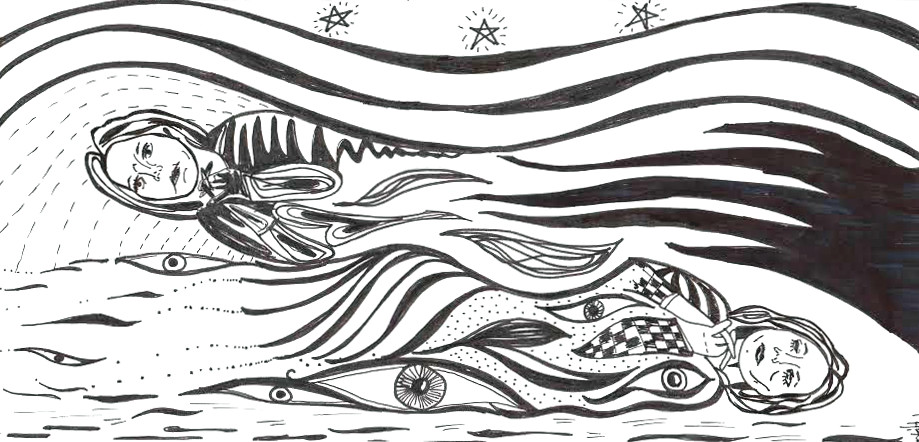Welcome to the “Extraordinary” edition of Understorey Magazine, a diverse collection of stories, poetry, and visual art on mothering through social, physical, and mental challenge. We are excited to publish work by both new and established writers and artists — Canadian women living in Nova Scotia, New Brunswick, Ontario, British Columbia, the US, and the Netherlands.
Our title, “Extraordinary,” is meant to skirt (at least temporarily) sometimes disputed terms such as “disability” or “special need” while at the same time raising questions about what these words and categories mean to the people who live them.
Literally, extraordinary means outside or beyond the ordinary. But the word draws no definite or permanent line between inside and out — and makes no obvious value judgement. Extraordinary can mean rare, distinctive, atypical, and sometimes fabulous.
Likewise, through essays, fiction, poetry, and art, our contributors show that there are many ways to define, surpass, or simply live with our particular challenges — and those of our kids.
Andrea Nicki, in her poem on personality disorder, and Renate Lindeman, in her essay on mothering two daughters with Down syndrome, for example, raise pointed questions about definitions and authority. What is, or should be, the role of doctors, patients, and parents in proclaiming a diagnosis? And why should that declaration — the finding of an extra chromosome, for instance — trump all other ways of describing who we are and what we can do?
In fact, contributors Alice Evans, Kristin Proctor, and Carol Bruneau ask — in very different ways — whether Down syndrome, selective mutism, or schizophrenia are adequately described as a deficit. Are such conditions simply an absence that needs to be filled or fixed? Or can they be better described as the presence of something that, yes, brings challenge but also creates a new way of viewing and being in the world?
Indeed, for some people, symptoms and struggles are constant and unwavering. But for many, the lines between ability, disability, and even super-ability shift with age or task or surrounding. Poets Tracy Carruthers and Paula Follett-Comeau look at everyday events, a shared meal or a visit to the theatre. They ask, as everyone has asked from time to time: Is this normal? Do we need a name for this, a label? Do other kids and other mothers experience this too?
Motherhood, of course, adds layers of complexity to these questions. Mothers are supposed to protect. They are supposed to help their children. They’re supposed to want the best for their families, even at personal cost. Already, this is extraordinary. But contributors Sheila Morrison, Debra Reynolds Banting, and Susie Berg explore maternal responsibility, expectation, and love through the added challenges of autism, depression, substance abuse, and mental illness.
Cecile Proctor and Rita Kindl Meyers examine the flip side of these issues. What happens when a mother coping with traumatic brain injury or multiple sclerosis must learn to depend on her children, and learn to ask for help rather than provide it? How do mothers and their kids face this unexpected reversal of care, vigilance, and trust?
In all of these situations, the private slips into the public — and therefore into the political, the bureaucratic, and sometimes, as Rachel Edmonds finds in Sue Goyette’s new book, the legal. But while our social institutions might provide necessary guidance through our individual challenges, we can gain no deep understanding of ourselves, our families, our community — our motherhood — without telling our own, personal stories of everyday experience.
And so we present the “Extraordinary” edition of Understorey Magazine.
Thank you to the writers who sent in their work. Although not all submissions are published here, all took time, energy, and much courage to set down on screen or paper.
Thank you to the artists whose incredible work brings this magazine to life. Not coincidentally, several of the stories in this issue demonstrate an essential link between art, wellness, accomplishment, and empowerment. Written stories tend to get centre stage in our editorials, but the stories told through visual art are vital to Undertorey‘s mission, message, and aesthetic appeal.
A sincere thank you Disabled Persons Commission of Nova Scotia and the Family Development Centre for their enthusiastic moral support and generous financial support, both of which made the “Extraordinary” edition possible.
And, of course, thank you to all of our readers. Please leave a comment or two and tell us what you think!


